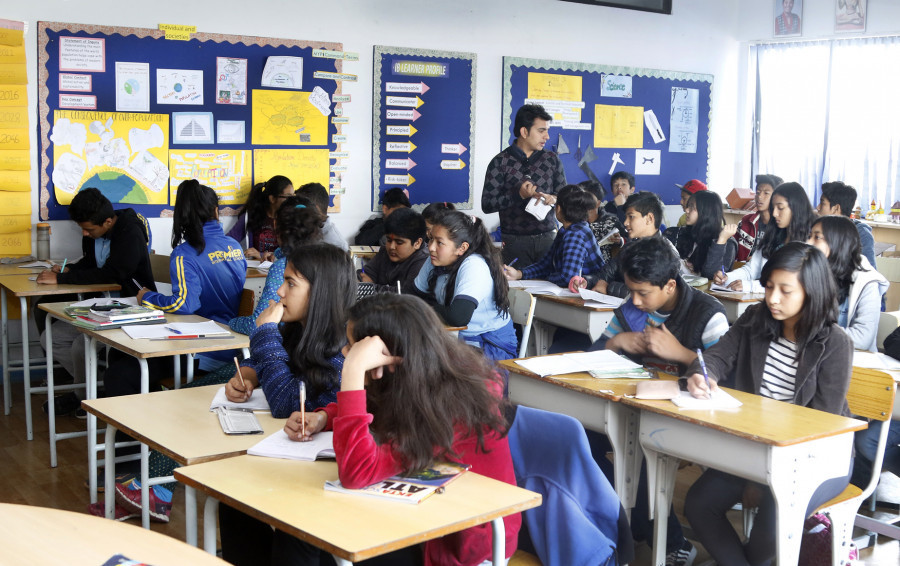Editorial
A balancing act
Private schools can’t collect fees when they're closed. They can’t go bankrupt either.
The Private and Boarding Schools’ Organisation Nepal (PABSON) and the National Private and Boarding Schools’ Association Nepal (N-PABSAN) on Sunday issued a joint statement asking guardians to pay the tuition fees of their wards for Chaitra (March/April) and thereafter. This contravenes the directives from the Education and Health Committee of Parliament and the government that schools can’t collect fees for the months when they are closed. Some schools have also reportedly asked guardians to visit their premises to get their wards admitted for the new academic year. Apart from flouting the government’s directive to remain closed, the schools pose a grave threat to the security of the guardians, the students and the community as Covid-19 transmission cases continue to rise. If they can’t take responsibility for a possible mass transmission, they must keep their shops shut for the time being. Once the government asks them to reopen, it will be the one taking responsibility for any untoward situation.
The new fad of online learning that schools have followed so religiously, it is getting clearer by the day, is an excuse for them to keep collecting fees even as they are closed. So much so that they have misinterpreted the statement Prime Minister KP Sharma Oli’s gave, on June 16, while initiating the alternative learning model for students up to the secondary level. PM Oli had clearly stated that the model was meant to keep the students anchored to their reading habits and was not meant to be a substitute for formal education. But private schools pretend entitlement to collect fees since they have invested in alternative learning technologies in line with the government’s initiative. In enforcing the model indiscriminately, private schools are, in fact, putting an additional burden on guardians to invest in computers, smartphones and internet connections even as the pandemic has severely affected the purchasing powers of a vast number of guardians.
Not all schools are using the pandemic as an opportunity to accumulate capital though. Despite their primary interests in capital accumulation, they also serve as the backbone of the country’s education system. And, to be fair to them, not all of the over 8,000 private schools across the country are equally rich or exploitative. They also have salaries, rents and loan installments to pay. Surely, they can’t be expected to go on paying salaries, rents and loan installments without being able to collect the fees. They need immunity from possible bankruptcy. There must be a safe way out.
The government has promised a soft loan scheme for the schools struggling to pay their teachers and cover other costs, but that may not be sufficient. It must come up with a more elaborate plan to help the schools remain afloat until they reopen and begin collecting fees from guardians again. As a temporary compromise, the government may allow the schools to collect a limited percentage of the tuition fees—say a quarter or a third—to be able to meet a part of their operational costs. That may provide the schools with some relief. But for a more permanent solution, the government and the schools’ representatives must sit down for talks and strike a fine balance between fulfilling the schools’ immediate financial needs and the parents’ ability to pay for the maintenance of the institutions that serve the educational needs of their wards.



 9.7°C Kathmandu
9.7°C Kathmandu














